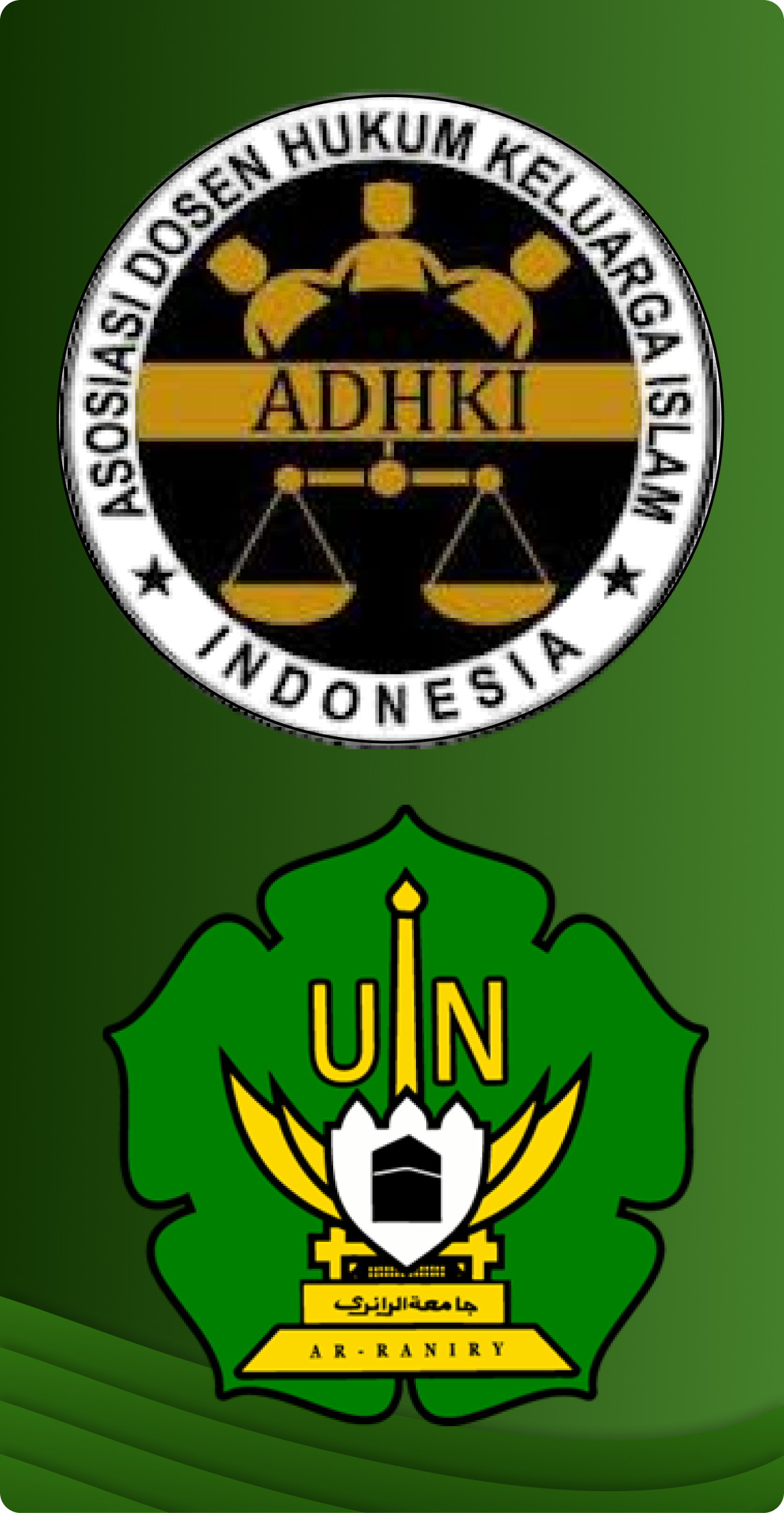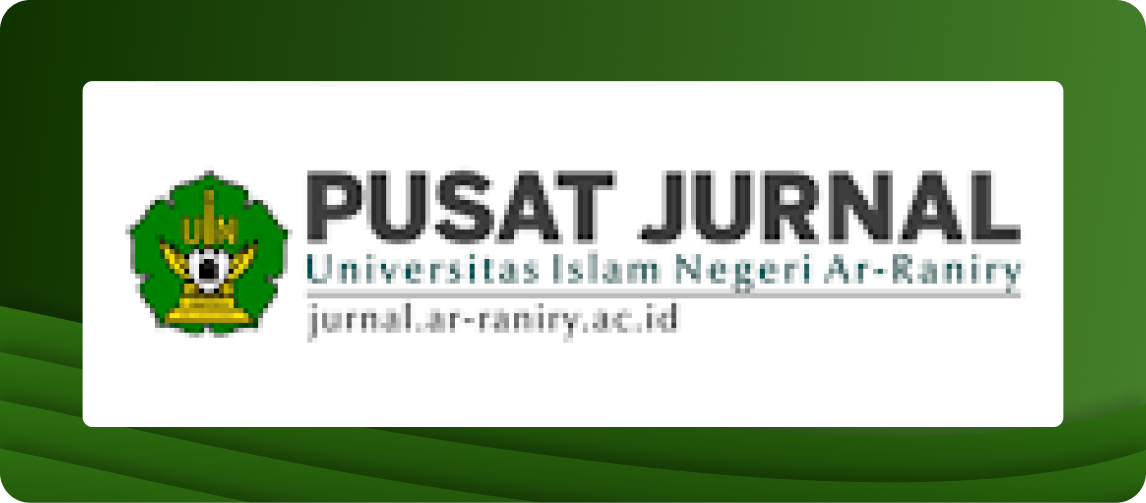The Tradition of Tepuk Tepung Tawar in Malay Weddings from the Perspective of Islamic Law: A Case Study at Tanjungpinang, Riau Islands
DOI:
https://doi.org/10.22373/ujhk.v6i2.5391Keywords:
Tradition, Malay, Tepuk Tepung Tawar, Islamic LawAbstract
Tepuk Tepung Tawar is a ritual in the Malay wedding ceremony, especially in Kampung Melayu of Kota Tanjungpinang Subdistrict. This tradition is also carried out for children who have completed their Qur’an recitation, with prayers for their safety, well-being, and protection from hardship in life. This present study used a sociological method, in which data were analyzed by using the theory of ‘urf (social custom) in Islamic law. Data were collected by means of interview and document study. This study revealed that historically, the tepung tawarceremony for newlyweds would be carried out alternately for each, considering that they have not yet had mahar batih (not yet consummated), while the tepung tawar ceremony for both would be carried out for longtime married couples. The Malay people are very strong in observing their customs and traditions; even giving rise to the Malay proverb “biar mati anak dari pada mati adat”, better for a child to die than for a custom to die. This proverb illustrates how deeply the Malay people are in upholding the customs and traditions of their ancestors. Theoretically, there is also harmony between Islamic law and ‘urf or social custom in Malay weddings.
References
Journals and Books
Al-Suyuti, Imam Jalaluddin Abdurrahman, Al-Asybah wa An-Nadhoiru, Makkah: Maktabah Nazzar al-Baz, 1997.
Azra, Azyumardi, Jaringan Ulama Timur Tengah dan Kepualauan Nusantara Abad XVII-XVIII (Bandung: Mizan, 1994).
Batubara, Taslim, “Tradisi Tepung Tawar: Integrasi Agama dan Kebudayaan pada Masyarakat Melayu di Sumatera Utara,” Local History & Heritage 2, No. 1 (2022). https://doi.org/10.57251/lhh.v2i1.288.
Budiawan, Afiq, “Tinjauan al Urf dalam Prosesi Perkawinan Adat Melayu Riau,” Jurnal An-Nahl 8, No. 2 (2021). DOI:10.54576/annahl.v8i2.39
Burhanuddin, Jajat, “The Popularizing of Sunni Doctrine in Southeast Asia: Sifat Dua Puluh in Malay Kitab Jawi in the 19th Century,” Afkar: Jurnal Akidah and Pemikiran Islam 24, No. 2 (2022). https://doi.org/10.22452/afkar.vol24no2.8.
Enjelina, Selvia Frety Yunia, et al., “Kosmologi dalam Budaya Tradisi Tepuk Tepung Tawar Melayu Provinsi Riau,” Gorga: Jurnal Seni Rupa 11, No. 2 (2022). https://doi.org/10.24114/gr.v11i2.38050.
Hafiz, Muhammad and Tafsiruddin, “Masyarakat Melayu Riau Berbudaya,” Jurnal Dakwatul Islam 6, No. 2 (2022).
Huda, Yasrul, “Strengthening The Shafi‘i Madhhab: Malay Kitab Jawi of Fiqh in the 19th Century,” JURIS: Jurnal Ilmiah Syari’ah 22, No. 2 (2023). DOI: http://dx.doi.org/10.31958/juris.v22i2.10282.
Ibnu Taymiyah, Majmu’atul Fatawa, Beirut: Darul Fikr, 1980.
Kanafi, Imam, et al., “The contribution of Ahlussunnah Waljamaah’s Theology in Establishing Moderate Islam in Indonesia,” Teologiese Studies/Theological Studies 77, No. 4 (2021). DOI:10.4102/hts.v77i4.6437,
Mahaiyadin, Mohd Hapiz and Sumayyah Abdul Aziz, “Taqlid of The Syafi'i Mazhab in Malaysia: An Overview in the Context of Maslahah for the Unity of Ummah,” Journal of Contemporary Islamic Studies (2020). DOI:10.24191/jcis.v6i1.9.
Praja, Juhaya S., Teori Hukum dan Aplikasi, Bandung: Pustaka Setia, 2011.
Purnama, Handika, “Hukum Islam, Adat Dan Hukum Negara Dalam Perkawinan Masyarakat Suku Melayu Di Pekanbaru Riau: Keabsahan, Etika, dan Administrasi Perkawinan,” Al-Ahwal: Jurnal Hukum Keluarga Islam 14, No. 1 (2021). DOI:10.14421/ahwal.2021.14101.
Rahayu, Indah Septi and Lestari Setia Ningsih, Tepuk Tepung Tawar Pengantin Baru sebagai Tradisi Budaya Melayu dan Media Pendidikan,” Multiverse: Open Multidisciplinary Journal 2, No. 1 (2023).
Ramadhan, Dendy, “Relevansi Kearifan Lokal Tepung Tawar Dalam Pembelajaran Agama Islam (Studi pada Masyarakat Melayu Pontianak),” Tarbiyah Jurnal Ilmiah Kependidikan 8, No. 1 (2019). DOI:10.18592/tarbiyah.v8i1.2538.
Sadat, Anwar, et.al., "Determination of Auspicious Days in Wedding Traditions in Mandar, West Sulawesi: Perspective of Islamic Law," Samarah: Jurnal Hukum Keluarga dan Hukum Islam 7, No. 3 (2023). DOI: 10.22373/sjhk.v7i3.17864.
Wandi, Sulfan, “Eksistensi 'Urf dan Adat Kebiasaan Sebagai Dalil Fiqh,” Samarah: Jurnal Hukum Keluarga dan Hukum Islam 2, No. 1 (2018).
Yohana, Nova, and Kurnia Husmiwati, “Kaidah Interaksi Komunikasi Tradisi Lisan Basiacuang dalam Adat Perkawinan Melayu Kampar Riau,” Jurnal Penelitian Komunikasi 18, No. 1 (2015). DOI:10.20422/jpk.v18i1.19.
Interviews
Interview with Abdul Razak, Chair of Malay Customary Institution (Lembaga Adat Melayu) of Kota Tanjungpinang, May 19, 2019.
Interview with M. Yunus, Traditional Leader of Kampung Melayu, May 20, 2019.
Downloads
Published
Issue
Section
License
Authors who publish in El-Usrah: Jurnal Hukum Keluarga agree to the following terms:
Authors retain copyright and grant the journal right of first publication with the work simultaneously licensed Attribution-ShareAlike 4.0 International (CC BY-SA 4.0) that allows others to share the work with an acknowledgment of the work's authorship and initial publication in this journal.
Authors are able to enter into separate, additional contractual arrangements for the non-exclusive distribution of the journal's published version of the work (e.g., post it to an institutional repository or publish it in a book), with an acknowledgment of its initial publication in this journal.
Authors are permitted and encouraged to post their work online (e.g., in institutional repositories or on their website) prior to and during the submission process, as it can lead to productive exchanges, as well as earlier and greater citation of published work. (See The Effect of Open Acces)

















